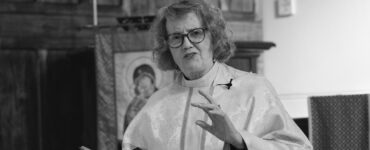This article was published by The Melbourne Anglican on 15 August 2025 and a section of it is shared below. Read the article in full here.
Written by Lesa Scholl
When the University of Divinity closed its School of Indigenous Studies, founding faculty members Garry Worete Deverell and Naomi Wolfe were disappointed, but understood the challenges of developing initiatives in the cash-strapped university sector.
One year after the School’s closure, these First Nations theologians are carving out space for their work amid Victoria’s colonial legacy.
Ms Wolfe said it seemed like the whole sector took a couple of steps forward and a couple back when it came to Indigenous knowledges.
“I don’t think institutions are feeling particularly comfortable with embedding Indigenous studies or theologies for whichever discipline it is,” she said.
She said this led her to consider how this joint responsibility of Indigenous and non-Indigenous people could be made truly collaborative and sustainable in the tertiary space.
Ms Wolfe said it was important to study how Indigenous spirituality was Christian or otherwise, how it sat alongside Christian theologies and traditions, but also how those traditions could be interwoven.
“As an Aboriginal person who is a Christian, weaving together is unconscious,” she said. “But because we work in the tertiary sector and with churches…we have to make some of those unconscious things known to ourselves and to others.”
Dr Deverell and the Reverend Canon Glenn Loughrey have designed the Lomandra workshop series to achieve this end.
The workshops are hosted at Yilawaru, where Canon Loughrey’s artworks surround the participants as they learn about Indigenous theology.
Cleansing smoke features throughout these gatherings, giving life to understandings of the Dreaming and ways to include Indigenous knowledge in liturgy.
Dr Deverell said the workshops were a more accessible version of what they were trying to do through UD.
He said theology in Australia remained dominated by European and North American models that continued to ignore the embeddedness of Christianity in their colonial legacy.
The workshops sought to decolonise the European social and theological imaginary and to indigenise theology so it made sense to Aboriginal people. …
[Keep reading at https://tma.melbourneanglican.org.au/2025/08/indigenous-theology-challenges-colonial-legacy/ ]






Add comment